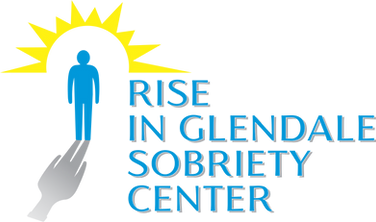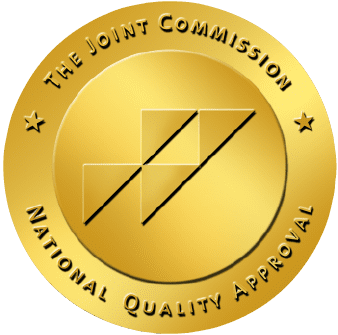
Supervised Detoxification is a crucial first step toward substance abuse recovery for those individuals who are struggling with substance abuse addiction to alcohol, prescription pills, or illegal street drugs. This process, also known as medical detox or withdrawal treatment, is accomplished in a medically supervised environment where there is good support. Detoxification involves clearing of toxins from the body of the patient who is acutely intoxicated and/or dependent on substances of abuse. Detoxification seeks to minimize the physical harm caused by the abuse of substances. It is an essential step towards achieving a healthier and sober lifestyle.
Supervised medical detoxification is a set of interventions directed toward managing acute intoxication and withdrawal of drugs and/or alcohol. It is crucial to understand that supervised detoxification can prevent potentially life-threatening complications that may arise if a patient is left untreated. In addition to preventing life-threatening complications, detoxification can also serve as a form of palliative care for those seeking abstinence or who are required to abstain due to hospitalization or legal involvement.
Moreover, detoxification can serve as the first point of contact with the treatment system and the initial step toward recovery for some patients. However, it is important to note that substance abuse treatment and rehabilitation involve a range of ongoing therapeutic services aimed at promoting long-term recovery for substance abuse patients. By reducing the intensity of the disorder, detoxification can help patients manage their symptoms and improve their overall well-being.

Our treatment center offers a thorough inpatient detox program that includes three crucial intervention components. Our medically supervised environment is tailored to handle acute intoxication and withdrawal symptoms while eliminating toxins from the bodies of patients who are heavily reliant on substances of abuse. Our team of medical professionals is committed to reducing the physical harm caused by substance use disorders. Please review below are 3-detox processing components.

Evaluation of substance abuse involves various procedures such as testing for the presence of drugs in the bloodstream, measuring their concentration, and screening for any co-occurring mental and physical conditions. In addition to testing for substance abuse, evaluation also involves a comprehensive assessment of the patient’s mental, physical and psychological conditions, as well as their social situation. The information gathered during evaluation is crucial in determining the appropriate level of treatment following supervised detoxification. Essentially, the evaluation serves as the basis for the initial substance abuse treatment plan once the patient has successfully completed withdrawal. This ensures that the patient receives the most effective treatment plan tailored to their specific needs.

The process of stabilization is essential in providing medical and psychosocial support to patients during their acute intoxication and withdrawal stage. The aim is to help them attain a substance-free state while receiving full support to ensure their overall well-being. Stabilization is typically achieved with the help of medications, although some detoxification approaches do not involve medication. During this process, patients are also educated about what to expect in the treatment environment and their role in the treatment and recovery process. Practitioners also involve the patient’s family, employers, and other significant individuals during this time, as appropriate and with the patient’s consent to release confidentiality. This helps to ensure that the patient receives the necessary support and resources to aid in their recovery process.

Advancing the patient’s entry into treatment is a crucial step towards recovery. It involves preparing the patient for the complete substance abuse treatment continuum of care and emphasizing the importance of following through with it. A written treatment contract can be beneficial for patients who have a history of completing detoxification services but failing to engage in substance abuse treatment. The treatment contract is a voluntary agreement that patients can sign at the beginning of their treatment. It is not legally binding, but it serves as a commitment to participate in a continuing care plan. The contract includes details that are established prior to the completion of detoxification, ensuring that the patient has a clear plan with the best opportunity to learn, change and live happy, healthy lives free from addiction.
When it comes to detoxification, we have trained our staff to remember that each patient needs compassion and understanding. At Rise in Glendale Sobriety Center, we strongly believe that by treating each patient with respect and showing that we care about their future, we can help them feel more comfortable and confident in following our recommendations. We strive to provide exceptional care for our patients. We prioritize their well-being to ensure a successful detoxification process for both the patient and our staff. Our ultimate objective is to assist our patients in achieving a healthier and happier life. If you or a loved one are struggling with a substance use disorder and looking for an addiction treatment program, get in touch with us today for more information about our drug rehab and detox center and the treatment options we offer.
*As required by law, all communications with Rise in Glendale Sobriety Center are HIPAA Compliant and 100% Confidential.

At our Los Angeles-based detox center, we understand that each individual’s journey to recovery is unique, influenced by the type of substance and the extent of their dependency. We are equipped to manage detoxification from a wide range of substances, providing specialized care tailored to the needs of each patient. Below are the primary substances we treat:
Experiencing withdrawal symptoms is a common and expected part of the detoxification process when an individual stops using addictive substances. The intensity and nature of these symptoms can vary widely based on several factors, including the duration and intensity of drug use, the type of substance, and the individual’s overall physical and mental health. At our treatment facility in Los Angeles, we provide expert medical supervision to manage and alleviate these symptoms, ensuring a safer and more comfortable detox experience.
Our approach to managing these symptoms involves a combination of medication-assisted treatment to alleviate physical discomfort, coupled with counseling and psychological support to address emotional and behavioral challenges. The goal is to create a supportive environment that addresses all aspects of withdrawal, paving the way for effective rehabilitation and recovery.
Medical detox is the first step in overcoming drug addiction, involving the supervised withdrawal from drugs or alcohol under medical guidance. This process is necessary because it helps manage withdrawal symptoms safely, reducing the risk of potential health complications that can arise from sudden cessation of substance use.
The duration of medical detox varies depending on the substance involved and the individual’s specific health needs. Generally, detox can last from a few days to a couple of weeks. Our team at the Los Angeles facility provides a personalized assessment to determine an individual’s unique needs and the optimal detox timeline for each patient.
Most health insurance plans cover medically supervised detox services, but coverage can vary based on your specific plan. Our staff at the Los Angeles facility can assist you with verifying your insurance coverage to determine what services are covered and guide you through the financial aspects of your detox treatment.
You should bring a few personal items to help make your stay more comfortable, such as clothing for a week, personal hygiene products, and any current prescriptions. Valuables and substances that could interfere with detox should be left at home. Upon admission, our staff will provide you with a detailed list of what to bring and what to leave behind.


3449 Stancrest Drive,
Glendale, CA 91208
License Number: 191304AP
Effective Date: 2/1/2024
Expiration Date: 1/31/2025
RISE in Glendale Sobriety Center
3449 Stancrest Drive,
Glendale, CA 91208
General Email:
info@risesobrietycenter.com
General Info & Admissions:
(747) 255-7083
For any general inquiries, please fill in the following contact form:
© 2025 Rise in Glendale Sobriety Center, Inc. All Rights Reserved.